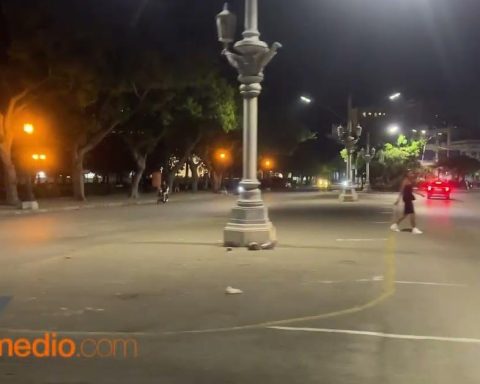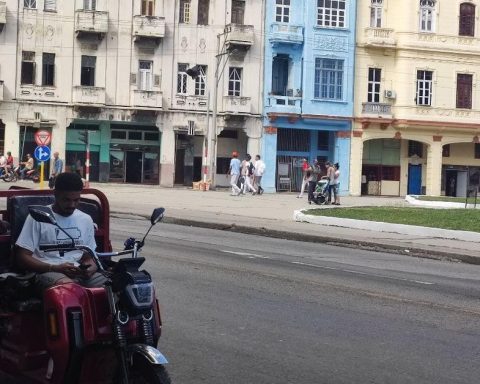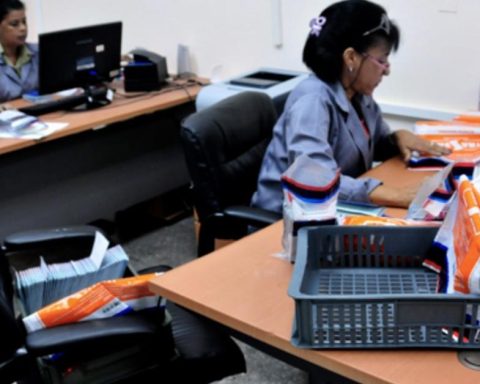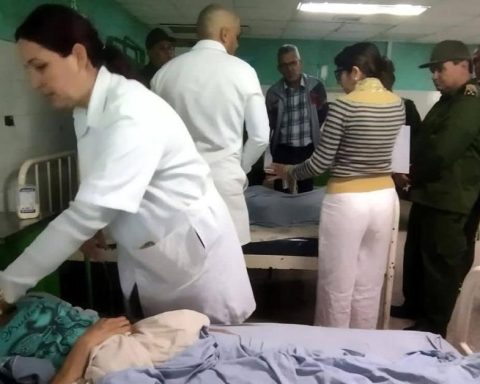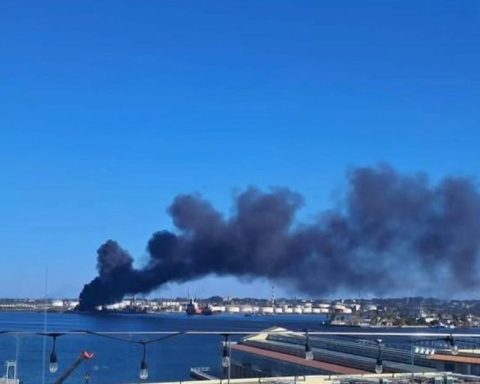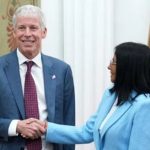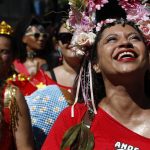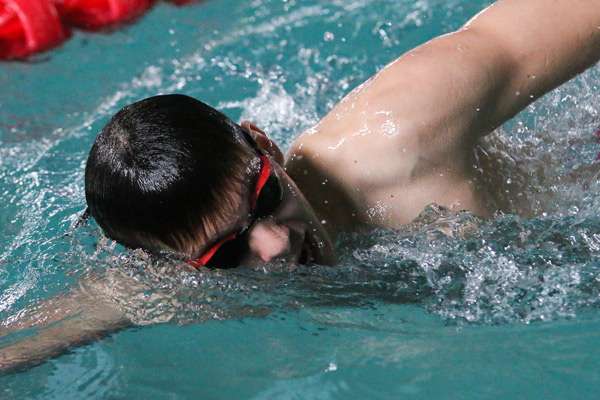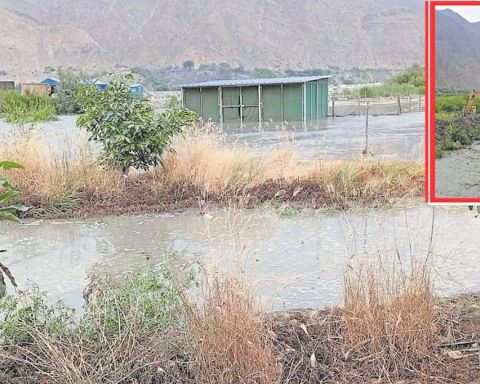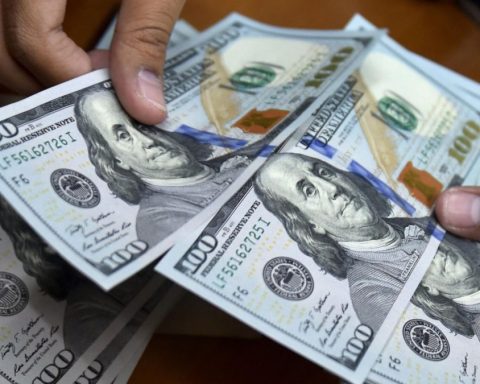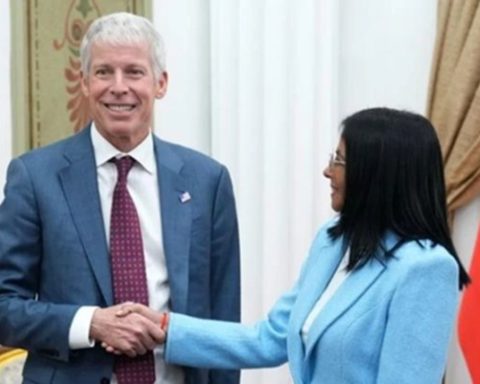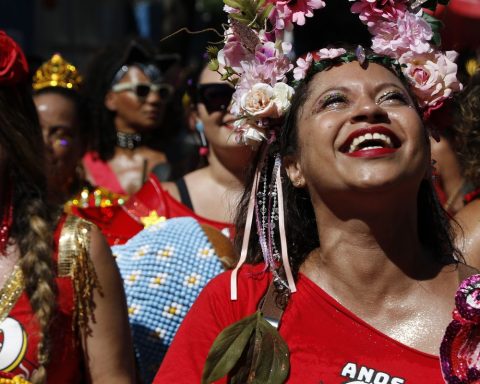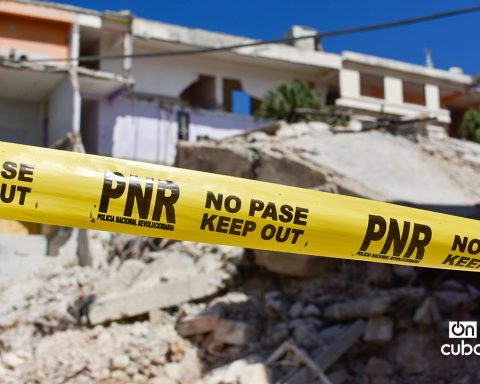
The Conference of Catholic Bishops of Cuba (COCC) issued an official statement on Friday about the meeting they held two days ago with President Miguel Díaz-Canel and other high-ranking officials of the country.
In it they did not allude to something that Ariel Suárez, secretary of the Episcopal Conference, I had recognized this Thursday to the Reuters agency: that the parties addressed the issue of the political prisoners detained for the demonstrations of July 11, 2021.
Instead, the text affirms that the bishops “did not stop at specific situations of the Church, but shared with all respect, sincerity and clarity their concerns and assessments about the current moment in which we live.”
In addition, they appreciate “the possibility of the exchange, for the seriousness in which it was developed” and “the opportunity to be heard” and value “the importance and convenience of this experience, also for the future”.
They appreciate “the possibility of the exchange, for the seriousness in which it was developed” and “the opportunity to be heard” and value “the importance and convenience of this experience, also for the future”
It was an occasion, they conclude, “for the bishops to renew to the authorities their commitment to the Cuban people and to everything that favors a more serene climate of peace, harmony, respect for all, and hope.”
Asked about the role of the Catholic Church in mediating with the regime, the Cuban priest Alberto Reyesin interview with 14ymedio, he opined that the institution has its own limits, and that, despite its social impact and charitable works, “it is not a charity or a political party”.
Precisely on the occasion of Reyes’ visit to Brussels, a group of MEPs condemned in a letter “the increase in citizen repression, the lack of freedom of expression and the absence of signs of openness and democracy” on the Island.
The letter, released this Friday by the Cuban Observatory of Human Rights and signed by Leopoldo López Gil, Javier Nart, Antonio López-Istúriz, Gabriel Mato, Enikö Györi, Soraya Rodríguez Ramos and Jordi Cañas, expresses its concern for “the unacceptable situation of political prisoners in Cuba, imprisoned for exercising their legitimate right to ask for democratic changes on the Island”.
In addition, they refer to the “marked deterioration of civic life in Cuba”, evidenced by “the recurring lack of medicines, the growth of violence and insecurity due to the precariousness suffered by its population.”
They call for the holding of “free, transparent and guaranteed elections, which will help the country return to the democracy that its citizens long for”
This, they continue, “has triggered emigration to critical levels, especially of the young population, which is forced to leave due to the lack of a future.”
In accordance with the Political Dialogue and Cooperation Agreement, in force between Cuba and the European Union, they call for the holding of “free, transparent and guaranteed elections, which will help the country return to the democracy that its citizens long for.”
On Wednesday, 50 relatives of political prisoners on the island They sent a letter to the Eurocámara in which they exposed the precarious situation of those detained after the massive protests of July 11, 2021 in Cuba.
The signatories recalled in their letter that, in September of that same year, the European Parliament approved the resolution P9-TA (2021) 0389, which condemned the “government repression” that was being reported from numerous cities in Cuba. The relatives describe this document as “one of the most forceful texts in favor of the freedom of the Cuban people.”
Right there they also recalled the most recent mediation attempt for the release of the prisoners, that is, during the visit of Cardinal Beniamino Stella, special envoy of Pope Francis and former Vatican ambassador during the Special Period. Stella, supported by the pontiff, had requested “an amnesty or some form of clemency” for political prisoners. Members of the Cuban Episcopal Conference also joined the claim, without a concrete response from the government.
Although Stella’s statements suggested that a conversation had taken place at the highest level about the prisoners, Miguel Díaz-Canel’s public reaction was to affirm that he would try to find “a solution to the expectations of both parties.” But the negotiation, in which several countries, such as Spain, affirmed that they were willing to offer asylum to the interested parties, again came to nothing.
________________________
Collaborate with our work:
The team of 14ymedio He is committed to doing serious journalism that reflects the reality of deep Cuba. Thank you for accompanying us on this long road. We invite you to continue supporting us, but this time becoming a member of our newspaper. Together we can continue transforming journalism in Cuba.
